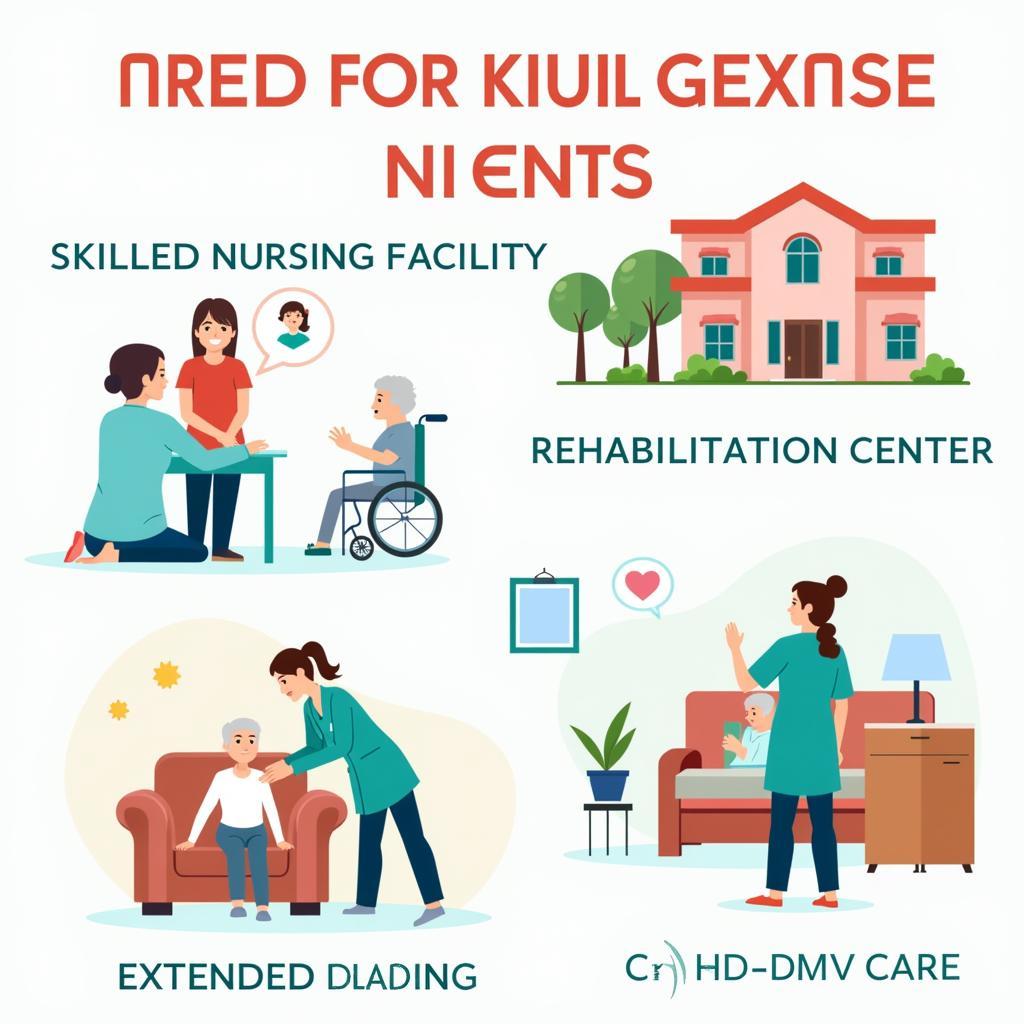What is Extended Care Services?
Extended care services bridge the gap between hospital stays and full independence, providing ongoing medical, personal, and therapeutic support to individuals recovering from illness, injury, or surgery. These services are crucial for those who require more than basic home care but are not yet ready to return to their previous level of self-sufficiency. They offer a valuable safety net, ensuring patients receive the care they need while gradually regaining their strength and abilities.
Understanding what extended care services entail is essential for patients, families, and caregivers alike. These services cater to a wide range of needs, going beyond simple assistance with daily tasks. They address medical, physical, and emotional well-being, fostering a holistic approach to recovery. Choosing the right extended care services can significantly impact the patient’s overall recovery process and quality of life. Are you researching urgent care services too? This information can help you differentiate between different levels of post-hospital care.
Types of Extended Care Services
Extended care services encompass a variety of options, each tailored to specific needs and recovery goals. These options can range from skilled nursing facilities to rehabilitation centers and even in-home care. Understanding the differences between these services is crucial for making informed decisions.
Skilled Nursing Facilities
Skilled nursing facilities offer 24-hour medical care under the supervision of registered nurses and physicians. These facilities provide comprehensive medical services, including medication management, wound care, and respiratory therapy. They are ideal for individuals requiring continuous medical monitoring and assistance with daily living activities.
Rehabilitation Centers
Rehabilitation centers focus on restoring lost function and improving independence. They offer physical, occupational, and speech therapy to help patients regain physical strength, cognitive skills, and communication abilities. These centers are beneficial for individuals recovering from stroke, traumatic brain injury, or orthopedic surgery.
In-Home Care
In-home care services bring professional care directly to the patient’s residence. This option allows individuals to recover in the comfort of their own homes while receiving personalized assistance with daily tasks, medication reminders, and other non-medical needs. In-home care can be a valuable resource for individuals who prefer to remain in their familiar surroundings during recovery.
 Extended Care Service Options
Extended Care Service Options
Benefits of Extended Care Services
The benefits of extended care services extend beyond basic medical care. They provide a supportive environment that promotes healing, independence, and overall well-being. For many, these services are instrumental in regaining their quality of life. Learn more about what the purpose of a service care plan is.
Enhanced Recovery
Extended care services provide comprehensive medical attention and therapies that accelerate healing and recovery. The structured environment and personalized care plans contribute to a more efficient and effective recovery process.
Increased Independence
Through targeted therapies and rehabilitation programs, extended care services empower individuals to regain lost function and improve their independence in daily living activities. This focus on independence helps restore confidence and self-sufficiency.
Improved Quality of Life
By addressing both physical and emotional well-being, extended care services enhance the overall quality of life for patients and their families. The support and resources offered create a positive and nurturing environment that promotes healing and well-being.
Choosing the Right Extended Care Services
Selecting the appropriate extended care services is a crucial decision that requires careful consideration of the individual’s specific needs, preferences, and medical condition. Working closely with healthcare professionals can help families navigate this process and make informed choices. Are you looking for information about VA extended care services? You can find more details here.
Assessing Individual Needs
A thorough assessment of the patient’s medical condition, functional limitations, and personal preferences is essential for determining the most suitable type of extended care.
Consulting with Healthcare Professionals
Physicians, nurses, and social workers can provide valuable insights and guidance in selecting the right extended care services. They can recommend appropriate options based on the patient’s specific needs and recovery goals.
Considering Financial Resources
Extended care services can vary in cost, and it is important to consider financial resources and insurance coverage when making decisions. Exploring available options and understanding associated costs can help families make informed choices.
Conclusion
Extended care services play a vital role in the recovery journey for individuals requiring ongoing medical, personal, and therapeutic support. Understanding the different types of extended care services, their benefits, and the process of choosing the right option is essential for ensuring a smooth and successful recovery. Remember to consider individual needs, consult with healthcare professionals, and explore financial resources to make informed decisions. What kind of services does urgent care provide? Understanding the differences can help you navigate the healthcare landscape.
FAQ
- What is the difference between extended care and skilled nursing?
- How long can someone stay in extended care?
- Are extended care services covered by insurance?
- How do I choose the right extended care facility?
- What is the role of family in extended care?
- Can extended care services be provided at home?
- What are the signs that someone needs extended care?
Need support? Contact us via WhatsApp: +1(641)206-8880, or Email: [email protected]. We have a 24/7 customer service team.

